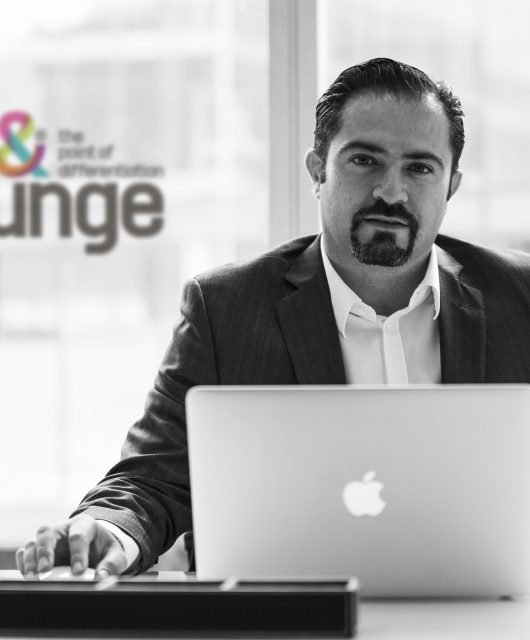Building A Digital-Savvy Brand: Q&A With P&G’s Pierandrea Quarta
Brands are constantly shifting and evolving trying to catch up with today’s increasingly digital world that demands new strategies and techniques to stay relevant in the game. The Brandberries has exclusively interviewed Pierandrea Quarta , Global Brand Manager of P&G’s Head & Shoulders , to get his insights on what does digital transformation mean for brands.
BB: The term “digital transformation” has been commonly used to describe anything that operates within the horizon of social media, mobile and web. What does “digital transformation” mean for brands ? How can it change the face of a brand ?

PQ: Digital transformation means building a future. Traditional long-established FMCG brands have generally struggled to realize how digital transformation was removing entry barriers into established markets, hence making these brands more vulnerable. They have started their digital transformation but ran into the competition of small digitally savvy brands that had found an intimate way of speaking to consumers, and a effective ways of understanding them. Now they are trying to catch up, realizing that a failure to do so would significantly jeopardize any possibility of future success. This change is taking the brand in territories previously not explored, engaging with consumers on a 1-1 basis, finding a need to adjust their tone of voice and changing some brand fundamentals which had been untouched for many years.
BB: One of the most important tips of digital transformation is ‘make it personal’. How can brands leverage digital transformation to become more consumer-centric ?
PQ:Digital targeting enables brands to customize their message to a very specific set of consumers, and performance marketing opens the doors to immediate feedback on what consumers are seeing and resonating with. Google trends gives great insights on what they are thinking and searching for, as well as the publicly available rating and reviews give great insights on how they are enjoying products (particularly the ones from competitors!). For all these reasons I would say that there has never been a better time to be consumer-centric. The real trick is how to do it at scale, and very few brands are succeeding at that. It is incredibly complex and costly to achieve quality mass reach, with TV still playing an important role in achieving that.
BB: While brands are able to reach consumers throughout many moments in their lives, competition for their attention is becoming stiffer. How can digital transformation help brands stay competitive ?
PQ: From an advertising quality stand-point, the beauty of the digital revolution is that it has significantly raised the creative bar. Brands have not been able to immediately adjust to that, and the rise of AdBlock was the answer to poor creatives and bad targeting. With more and more brands advertising their products digitally I believe that once more it is going to go back to creative quality. Quality will be the way to stand out in consumers’ news feed and will be the way to win their loyalty. Digital transformation should however also be used to find alternative channels where do quality engagement with consumers, and Gillette sponsoring online gaming competition is an example that comes to my mind with that respect.
BB: Digital, and especially mobile, has fundamentally changed the way people consume media, develop brand preferences and choose products. Can you elaborate on how digital transformation has an impact on empowering consumers ?
PQ: Consumers are learning about products/brands and developing their preferences in a very different way, and lots of it is linked to the fact that they have the power. They have the power to choose where they take information from, they have the power to give feedback and do harm to a company (instead of the unanswered letters from a few years ago), they have the power to influence millions of followers with their preference, and they have the power to create incredible desire for a brand (Supreme anybody?). Eventually what is happening is that consumers are shifting from a passive to an active role with brands finding themselves obliged to listen and adapt in order to stay in consumers’ considerations sets.
BB: Digital transformation is the act of investing in people, technology, systems, and processes to upgrade how businesses work in this digital economy. In your opinion, what are the key challenges that face brands when developing a digital transformation strategy ?
PQ:I believe that when speaking about key challenges linked to digital transformation it is all coming down to one word: people. It is hard for people to realize that a significant digital transformation is needed. Once acknowledged, it is hard to find the right people to lead that digital transformation due to scarcity of highly skilled talent in this domain. And once in place, the biggest resistance found in organizations is ultimately brought by people, who are not willing to change their established way of doing things and generally reluctant to change.





